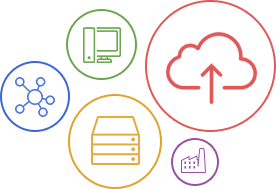In the digital age, data is one of the most valuable assets a business can possess. However, it's also a target for malicious actors who might exploit it for various purposes, including financial gain, identity theft, and corporate espionage. Thus, securing business data has become a critical concern for organizations worldwide. This article outlines the importance of data protection and discusses strategies for securing sensitive information in your IT systems.
The Importance of Data Protection
Data protection involves the implementation of safeguards to protect data from loss, corruption, unauthorized access, and breaches. It's a broad term that encompasses various aspects of data security and privacy, such as encryption, access controls, user authentication, and data classification. Protecting sensitive information, including customer details, financial data, and intellectual property, is not just good business practice; it's often a legal obligation.
Data breaches can lead to devastating consequences, including regulatory penalties, financial losses, reputational damage, and loss of customer trust. Consequently, every organization must prioritize data protection as part of its overall IT and business strategy.
Data Protection Strategies
Several strategies can be employed to secure sensitive business data:
Encryption
"Encryption converts data into a code that can only be accessed by authorized parties with the correct decryption key. It's a crucial component of data protection, as it ensures that even if a breach occurs, the stolen data is unreadable and unusable without the decryption key."- Emil Isanov
Access Controls
Access controls involve defining who has access to certain data and what they can do with it. This can be done by implementing role-based access control (RBAC) or access control lists (ACLs). These controls ensure that employees only have access to the data they need to perform their duties, reducing the risk of internal data breaches.
employees only have access to the data they need to perform their duties, reducing the risk of internal data breaches.
User Authentication
User authentication verifies the identity of a user trying to access the system. Implementing strong authentication mechanisms, like multi-factor authentication (MFA), can significantly enhance data security by ensuring that only authorized individuals can access sensitive data.
Data Classification
Data classification involves categorizing data based on its sensitivity. By identifying which data is most valuable and sensitive, organizations can apply appropriate security measures to protect it. This helps ensure that resources are not wasted on securing less sensitive information.
Compliance with Data Privacy Regulations
As the global regulatory landscape evolves, organizations must stay abreast of data privacy laws and regulations. These include the General Data Protection Regulation (GDPR) in the EU, the California Consumer Privacy Act (CCPA) in the US, and many others. Non-compliance with these regulations can lead to severe penalties and reputational damage.
A data protection officer (DPO) or a dedicated team can help ensure compliance with these regulations by conducting regular audits and implementing necessary controls. Furthermore, organizations should consider integrating Privacy by Design (PbD) principles into their systems and processes to proactively address potential privacy issues.
Conclusion
In conclusion, data protection is not a luxury but a necessity for modern businesses. By implementing robust data protection strategies like encryption, access controls, user authentication, and data classification, organizations can protect their valuable data assets and maintain their stakeholders' trust. As the stakes for data protection continue to rise, businesses must prioritize securing their IT systems to protect their sensitive information and uphold their reputation in the digital marketplace.
Also Read: Maximizing IT System Reliability for 24/7 Business Operations
.png)
Facebook: facebook.com/etech7
Twitter: twitter.com/etech7
Instagram: instagram.com/etech_7/
Blog: blog.etech7.com/














